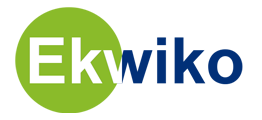Let’s face it, managing your finances can be a daunting task. With so many options to choose from and so much to keep track of, it can feel overwhelming. That’s why investing in personal finance software can be a wise decision. With the right financial software, you can manage and track your finances in a way that works best for you.
In this blog, I will provide an introduction to personal finance software, the types of software available, benefits of using it, and tips for choosing the right one. I will also review some of the best software on the market, discuss budgeting tools to help you manage your money, and provide tips on how to get the most out of personal finance software.
At the end of this blog, you’ll have all the information you need to make an informed decision and get your money swag on!
Introduction to Personal Finance Software
Personal finance software is an investment tool that helps you track and manage your finances. It can help you manage your budget, pay bills, track investments, and more. With the right personal finance software, you can easily manage your finances and ensure that all your financial goals are met.
The popularity of personal finance software has grown significantly in recent years as more people are looking for ways to take control of their finances. With the right software, you can easily monitor your spending, budget your money, and track investments. There is a wide range of personal finance software available, so you’ll be able to find an option that works best for you.
Types of Personal Finance Software
There are a variety of different types of personal finance software available. You can choose from basic budgeting software, tax software, retirement planning software, and more.
Basic budgeting software is a great option if you’re just starting out and need help keeping track of your expenses and income. This type of software can help you set a budget and track your spending so you don’t overspend.
Tax software is a great option for those who need help with filing their taxes. This type of software can help you find deductions and credits that you may have missed, as well as help you file your taxes accurately and quickly.
Retirement planning software is also a great option if you’re looking to plan for your retirement. This type of software can help you track your savings, investments, and other retirement-related expenses.
Finally, there is investment software, which can help you track your investments and monitor the performance of your portfolio. This type of software can also provide you with insights into the markets and help you make better investing decisions.
Benefits of Personal Finance Software
Personal finance software can be incredibly helpful in managing your finances. Here are some of the benefits of using personal finance software:
- It can help you keep track of your expenses and income and ensure that you’re staying on track with your financial goals.
- It can help you stay organized and ensure that all your financial information is in one place.
- It can help you identify areas where you can save money and make smarter financial decisions.
- It can help you create a budget and track your spending so you don’t overspend.
- It can help you track your investments and monitor the performance of your portfolio.
Tips for Choosing the Best Personal Finance Software
When it comes to choosing the best personal finance software, there are a few things to keep in mind. Here are some tips for choosing the right software for you:
- Do your research: Before committing to a particular software, be sure to do your research and read reviews to ensure that it’s the right fit for you.
- Understand your needs: Think about what you need from your software and how it will help you manage your finances.
- Choose an easy-to-use software: Make sure you choose a software that is easy to use and understand.
- Consider the price: Make sure you consider the price of the software to ensure it fits within your budget.
- Look for customer service options: Make sure you choose a software with good customer service options in case you have any questions or need help.
- Make sure it’s secure: Make sure the software you choose is secure and has the necessary privacy and security measures in place.
Reviews of the Best Personal Finance Software Options
If you’re looking for the best personal finance software, there are a few great options available. Here are some of the top picks:
- Quicken: Quicken is one of the most popular personal finance software options. It has a user-friendly interface and provides features such as bill reminders, budgeting tools, and investment tracking.
- Mint: Mint is a great option for those who are looking for a free personal finance software. It has an easy-to-use interface and provides features such as budgeting tools and bill reminders.
- Personal Capital: Personal Capital is a great option for those who are looking for investment tracking software. It has a powerful dashboard and offers sophisticated portfolio analysis tools.
- YNAB (You Need A Budget): YNAB is a great option for those who are looking for budgeting software. It has an easy-to-use interface and provides features such as budgeting tools, goal setting, and debt tracking.
Budgeting Tools to Help You Manage Your Finances
Budgeting is an essential part of managing your finances and personal finance software can help make budgeting easier. Here are some of the budgeting tools that personal finance software can provide:
- Expense tracking: Most personal finance software provides features that allow you to track your expenses and income. This can help you stay on top of your budget and ensure that you’re not overspending.
- Budgeting tools: Personal finance software can also provide you with budgeting tools to help you set up a budget and track your spending.
- Debt tracking: Many personal finance software programs provide debt tracking tools to help you stay on top of your debt. This can help you stay organized and ensure that you’re paying off your debt in a timely manner.
- Savings goals: Some personal finance software also provides features that allow you to set up savings goals and track your progress. This can help you stay motivated and on track with your savings goals.
How to Get the Most Out of Personal Finance Software
Once you’ve chosen the best personal finance software for you, you’ll want to make sure you’re getting the most out of it. Here are some tips on how to get the most out of your personal finance software:
- Set up budget reminders: Most personal finance software provides budget reminders that can help you stay on track with your budget.
- Set and track savings goals: Personal finance software can also help you set up and track your savings goals. This can help you stay motivated and on track with your financial goals.
- Automate your finances: Many personal finance software programs offer features that can help you automate your finances. This can help save you time and ensure that your finances are being managed in the most efficient way.
- Monitor your investments: Personal finance software can also help you monitor your investments and track the performance of your portfolio. This can help you make better investing decisions and ensure that you’re maximizing your returns.
How to Save Money with Personal Finance Software
Personal finance software can also help you save money. Here are some tips on how to save money with personal finance software:
- Track your spending: Personal finance software can help you track your spending and ensure that you’re not overspending.
- Find deals and discounts: Many personal finance software programs provide features that can help you find deals and discounts. This can help you save money on your purchases.
- Invest wisely: Personal finance software can also help you make smarter investing decisions. This can help you maximize your returns and ensure that you’re investing wisely.
- Automate your finances: Automating your finances can help ensure that you’re staying on top of your finances and not missing any payments.
Security and Privacy Considerations for Personal Finance Software
When choosing personal finance software, it’s important to consider security and privacy. Here are some tips on how to ensure that your personal finance software is secure and private:
- Choose a reputable software: Make sure you choose a reputable personal finance software that has a good track record for security and privacy.
- Use a secure password: Make sure you use a secure password for your personal finance software.
- Use two-factor authentication: Many personal finance software programs offer two-factor authentication, which can help protect your account from hackers.
- Monitor your accounts: Make sure you monitor your accounts regularly to ensure that there are no suspicious activities or unauthorized charges.
- Read the terms and conditions: Be sure to read the terms and conditions of your personal finance software to ensure that your data is secure and private.
Conclusion
Personal finance software can be a great investment for those looking to take control of their finances. With the right software, you can manage and track your finances in a way that works best for you. In this blog, I provided an introduction to personal finance software, the types of software available, benefits of using it, and tips for choosing the right one.
I also reviewed some of the best software on the market, discussed budgeting tools to help you manage your money, and provided tips on how to get the most out of personal finance software. Now that you’ve read this blog, you should have all the information you need to make an informed decision and get your money swag on!

